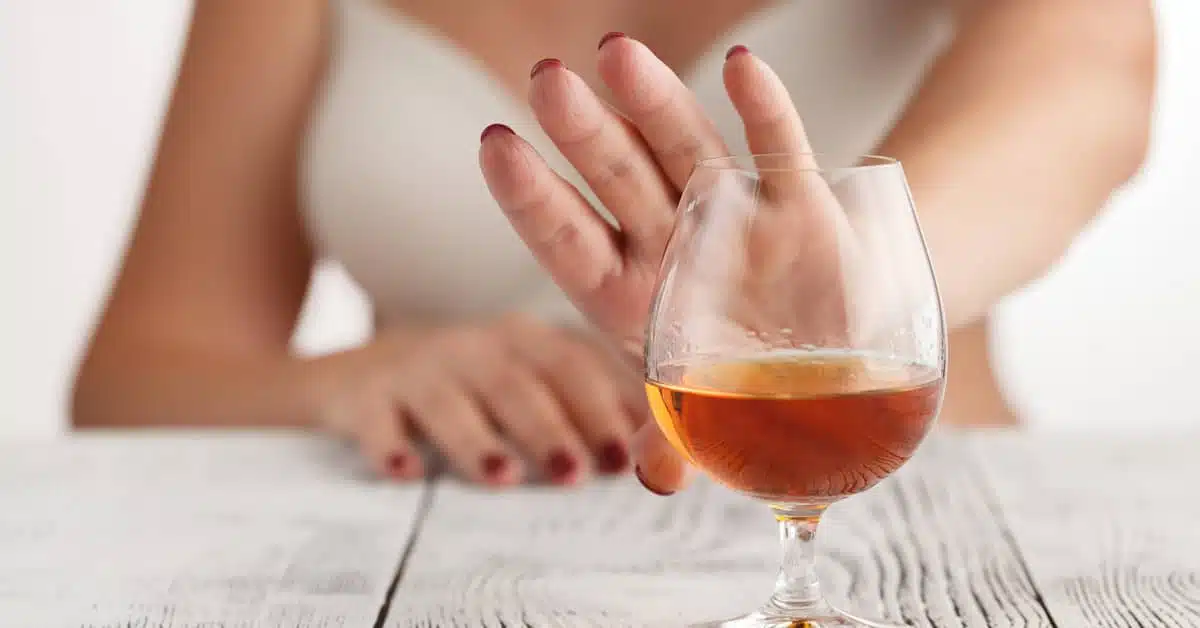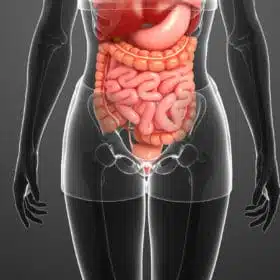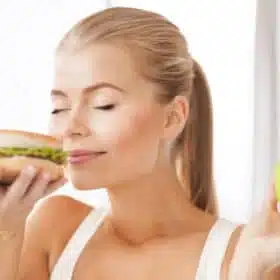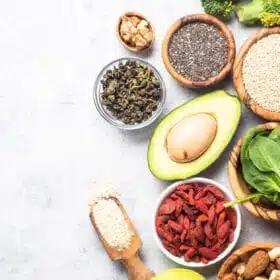Reduce weight and the Fat burning are important characteristics that an athlete should consider for his athletic success. This includes knowing how many calories each nutrient and, for example, the alcoholic beverage contains. Protein and carbohydrates have 4 calories per gram, while fats have around 9 calories per gram. Alcohol has "only" about 7 calories, but it is processed completely differently in the digestive tract as a so-called cell toxin. Excess calories that are not needed for energy production are stored as body fat for future activities. With alcohol, the body reacts differently. Alcohol is identified by the body as a cell toxin, which means that the alcohol calories must be eliminated from the body as quickly as possible. For this purpose, alcohol is converted into acetate. However, this process also inhibits digestion and thus ensures that fat burning is slowed down. In addition, less body fat is broken down, which means that more fat cells are stored in your body and fat burning is inhibited. This process was proven by a study at Massey University in New Zealand, which is explained in more detail below. The intake of alcohol therefore has a negative effect on fat burning and should therefore be avoided altogether or kept to a very low level.
How much alcohol is present in each drink?
If you like to drink alcohol, you should also know how many calories and alcohol are in the individual drinks. Below we have provided a list that informs exactly what ingredients are included in the different alcoholic beverages. The well-known types of alcohol wine, beer, spirits and liqueurs are usually sold with the following information:
Beer: 5% Alcohol
Wine: 12% - 13% Alcohol
Spirits: 40% Alcohol
Liqueurs: 35 - 40% alcohol
The following lists of individual beverages include alcohol, calorie count, and nutrient information. When specifying the content of the glass, you should assume about 0.3 liters of beer, 0.2 liters of wine and about 0.1 milliliters of spirits and liqueurs.
Beer
A mug of beer containing 4-5% alcohol:
14 milligrams of sodium (1%).
12.6 grams of carbohydrates (4%).
1.6 grams of protein.
14.2 milligrams of calcium.
96.1 grams potassium
Total calories: 153 (of which 97 calories are pure alcohol).
A mug of beer containing 2 - 3% alcohol:
34.7 grams of carbohydrates (12%).
Total calories: 139.
A pitcher of light beer contains:
14 milligrams of sodium.
5.9 grams of carbohydrates.
0.98 grams of protein.
14.4 milligrams of calcium.
75.6 milligrams of potassium.
Total calories: 105 (of which 78 calories are pure alcohol).
Wine & Champagne
A glass of champagne contains:
2 grams of carbohydrates.
Total calories: 85 (of which 78 calories are pure alcohol).
A glass of dessert wine contains:
9 milligrams of sodium.
14.1 grams of carbohydrates.
0.1 milligrams of calcium.
0.9 milligrams of potassium.
Total calories: 165 (of which 110 calories are pure alcohol).
A glass of wine with 6% alcohol contains:
10 milligrams of sodium.
13.3 milligrams of calcium.
130.2 milligrams of potassium.
1.7 grams of carbohydrates.
Total calories: 74 (of which 66 calories are pure alcohol).
A glass of red wine contains:
4.4 grams of carbohydrates.
0.1 grams of protein.
Total calories: 123 (of which 105 calories are pure alcohol).
A glass of table wine contains:
7 milligrams of sodium.
4 grams of carbohydrates.
0.1 grams of protein.
11.8 milligrams of calcium.
146.5 milligrams of potassium.
Total calories: 124 (of which 105 calories are pure alcohol).
A glass of white wine (Riesling, Chablis) contains:
5.5 grams of carbohydrates.
0.1 grams of protein.
Total calories: 120 (of which 98 calories are pure alcohol).
A glass of sparkling wine contains:
4 grams of carbohydrates.
Total calories: 93 (of which 98 calories are pure alcohol).
Spirits
1 milliliter of gin (40% alcohol) contains:
0.6 milligrams of potassium.
Total calories: 64 calories from alcohol.
1 milliliter of rum (40% alcohol) contains:
0.6 milligrams of potassium.
Total calories: 64 calories from alcohol.
1 milliliter of vodka (40% alcohol) contains:
0.6 milligrams of potassium.
Total calories: 64 calories from alcohol.
1 milliliter of whiskey (40% alcohol) contains:
0.6 milligrams of potassium.
Total calories: 64 calories from alcohol.
Liqueurs
A small glass of Baileys Irish Cream contains:
5.8 grams of fat (3.5 grams of saturated fat).
14 milligrams of cholesterol.
33 milligrams of sodium.
7.4 grams of carbohydrates.
1.2 grams of protein.
Total calories: 121 (contains 35 calories from alcohol).
A small glass of ouzo (40% alcohol) contains:
11 grams carbohydrates
Total calories: 103 (contains 70 calories from alcohol).
A small glass of liquor (40% alcohol) contains:
7 grams of carbohydrates.
Total calories: 100 (contains 70 calories from alcohol).
A small glass of Curacao (35% alcohol) contains:
6 grams of carbohydrates.
Total calories: 95 (contains 56 calories from alcohol).
A small glass of Amaretto (38% alcohol) contains:
17 grams of carbohydrates.
Total calories: 110 (contains 42 calories from alcohol).
A small glass of coffee liqueur contains:
3 milligrams of sodium.
11.2 grams of carbohydrates.
0.3 milligrams of calcium.
10.4 milligrams of potassium.
Total calories: 107 (contains 63 calories from alcohol).
How does alcohol affect athletic performance and fat burning?
The intake of alcoholic beverages has a significant impact on the Muscle building and the Fat burning. Performance in training and sports activity is also impaired by the intake of alcohol. An empirical study at Massey University in New Zealand was able to prove this. The study trial was started with a group of recreational athletes who had taken a drink of vodka and orange juice immediately after finishing their workout. A second group was given the same drink but without vodka after the same training sessions. The groups were then studied repeatedly by the researchers after 36 and 60 hours. The group that had taken the alcohol achieved significantly worse results. This was particularly evident on certain weight machine exercises, where a significant swing in performance was measured. The exact percentage difference between the groups was about 73 percent difference. The result clearly showed that alcoholic beverages should not be taken before an intensive training phase, since both fat burning and muscle building are considerably blocked and delayed with the intake of alcoholic beverages. At the same time, there is nothing against a glass of beer or wine drunk after recovery. If you want to do sports professionally and promote fat burning, you should make sure that alcohol is hardly consumed or not consumed at all. Alcohol slows down performance and thus also sustainable athletic success. Fat burning in particular should be an important motive for an athlete to reduce alcohol consumption.




